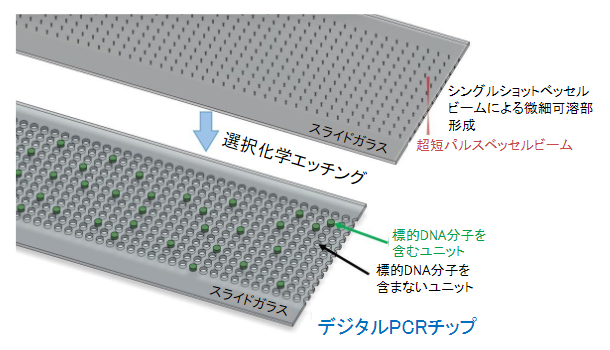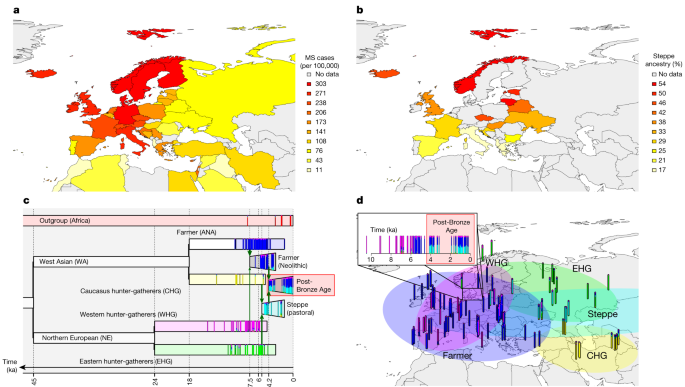2024-01-10 カロリンスカ研究所(KI)
◆研究では、IgA抗体を使用してOmicron変異体に対抗するための新しい方法を示し、高い中和効果を確認しました。この手法は他の感染症にも応用でき、特に高齢者や免疫不全の人々に対する有望な戦略となり得ます。
<関連情報>
- https://news.ki.se/nasal-spray-with-antibodies-could-prevent-covid-19
- https://www.pnas.org/doi/10.1073/pnas.2315354120
モノクローナルIgGの二量体および分泌型IgAへの変換が中和能を回復させ、オミクロン系統の感染を防ぐ Conversion of monoclonal IgG to dimeric and secretory IgA restores neutralizing ability and prevents infection of Omicron lineages
Harold Marcotte, Yunlong Cao, Fanglei Zuo, Luca Simonelli, Josè Camilla Sammartino, Mattia Pedotti, Rui Sun, Irene Cassaniti, Marie Hagbom, Antonio Piralla, Jinxuan Yang, Likun Du, Elena Percivalle, Federico Bertoglio, Maren Schubert, Hassan Abolhassani , Natalia Sherina, Concetta Guerra, Stephan Borte, Nima Rezaei, Makiko Kumagai-Braesch, Yintong Xue, Chen Su, Qihong Yan, Ping He, Caroline Grönwall, Lars Klareskog, Luigi Calzolai, Andrea Cavalli, Qiao Wang, Davide F. Robbiani, Michael Hust, Zhengli Shi, Liqiang Feng, Lennart Svensson, Ling Chen, Linlin Bao, Fausto Baldanti, Junyu Xiao, Chuan Qin, Lennart Hammarström, Xinglou Yang, Luca Varani, Xiaoliang Sunney Xie, and Qiang Pan-Hammarström
Proceedings of the National Academy of Sciences Published:January 9, 2024
DOI:https://doi.org/10.1073/pnas.2315354120

Significance
Considering the high risk of breakthrough infections in individuals with an insufficient mucosal immunoglobulin A (IgA) response, we have engineered various forms of monoclonal IgA antibodies for direct administration to the mucosal surface. The dimerization of IgA, potentially through increased avidity, significantly enhances the potency of broadly neutralizing antibodies tested. Importantly, converting IgG to dimeric and secretory forms of IgA restores neutralizing ability against Omicron variants. When administered intranasally, the dimeric IgA antibody DXP-604 provided both prophylactic and therapeutic protection against Omicron BA.5 in transgenic mice expressing human ACE2. Thus, the nasal spray delivery of dimeric or secretory IgA antibodies holds the potential to effectively block viral infection and enhance mucosal immunity against severe acute respiratory syndrome coronavirus 2.
Abstract
The emergence of Omicron lineages and descendent subvariants continues to present a severe threat to the effectiveness of vaccines and therapeutic antibodies. We have previously suggested that an insufficient mucosal immunoglobulin A (IgA) response induced by the mRNA vaccines is associated with a surge in breakthrough infections. Here, we further show that the intramuscular mRNA and/or inactivated vaccines cannot sufficiently boost the mucosal secretory IgA response in uninfected individuals, particularly against the Omicron variant. We thus engineered and characterized recombinant monomeric, dimeric, and secretory IgA1 antibodies derived from four neutralizing IgG monoclonal antibodies (mAbs 01A05, rmAb23, DXP-604, and XG014) targeting the receptor-binding domain of the spike protein. Compared to their parental IgG antibodies, dimeric and secretory IgA1 antibodies showed a higher neutralizing activity against different variants of concern (VOCs), in part due to an increased avidity. Importantly, the dimeric or secretory IgA1 form of the DXP-604 antibody significantly outperformed its parental IgG antibody, and neutralized the Omicron lineages BA.1, BA.2, and BA.4/5 with a 25- to 75-fold increase in potency. In human angiotensin converting enzyme 2 (ACE2) transgenic mice, a single intranasal dose of the dimeric IgA DXP-604 conferred prophylactic and therapeutic protection against Omicron BA.5. Thus, dimeric or secretory IgA delivered by nasal administration may potentially be exploited for the treatment and prevention of Omicron infection, thereby providing an alternative tool for combating immune evasion by the current circulating subvariants and, potentially, future VOCs.


